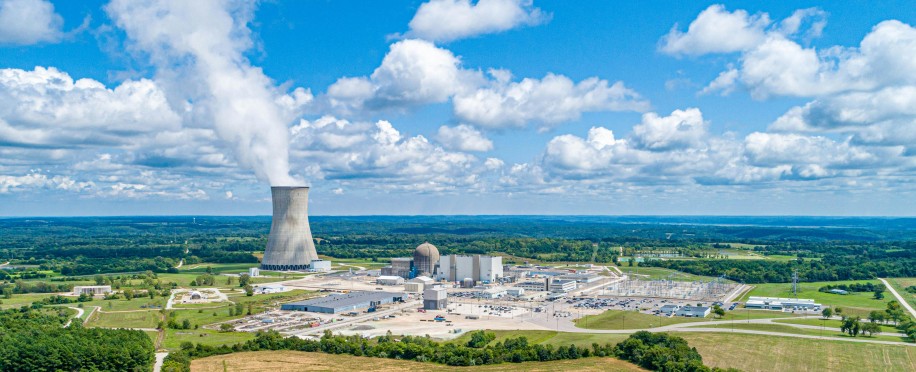Copyright © 2026 lpcentre.com All Rights Reserved. London Premier Centre For Training Ltd Registered in England and Wales, Company Number: 13694538
version: 3.0.1

Posted On: 9/16/2025, 10:09:44 PM
Last Update: 9/16/2025, 10:09:44 PM
The United States and the United Kingdom are about to sign a deal that will speed up the development of nuclear power.
The action will increase Britain's energy security and create thousands of jobs.
Both parties anticipate billions of dollars in private investment from an agreement anticipated to be finalised during President Trump's state visit this week.
Prime Minister Sir Keir Starmer described this as building a “golden age of nuclear” to place the two countries at the “forefront of global innovation.”
The UK and the US have formed the Atlantic Partnership for Advanced Nuclear Energy to accelerate the construction of new nuclear power stations. This initiative is expected to reduce household energy bills, generate employment, enhance energy security, and contribute to climate change mitigation.
By streamlining regulatory approvals, it will reduce the typical licensing process for nuclear plants from as long as four years to
as short as two years.
The agreement aims to foster commercial collaborations between UK and US entities, with several new deals anticipated. A notable component is the joint proposal by US nuclear firm X-Energy and UK energy company Centrica to construct up to 12 advanced modular nuclear reactors in Hartlepool, which could supply power to 1.5 million homes and generate approximately 2,500 jobs.
A significant programme, potentially worth £40bn with £12bn directed to the North East of England, is leveraging cooperation with US partners to enhance expertise and expedite progress, according to Centrica CEO Chris O'Shea.
Moreover, expansion of nuclear power is expected to provide stable long-term prices and greater certainty for UK consumers regarding their energy costs, facilitating better planning.
Small modular reactors (SMRs) operate on the same nuclear reaction principle as large reactors to generate electricity but are smaller, with output capacity up to one-third of a typical large reactor.
Their modular design allows for factory construction as kits and subsequent on-site assembly, similar to flat-packed components. The SMR industry is currently in its early stages, with various designs under development.
Under the UK-US agreement, Last Energy and DP World are collaborating on a micro-modular reactor at London Gateway port, supported by £80 million in private investment.
Separately, Holtec, EDF, and Tritax intend to transform the former Cottam coal-fired plant in Nottinghamshire into a nuclear-powered data centre hub.
The project, valued at £11 billion, is projected to generate numerous high-skilled construction roles and long-term operational positions. The partnership also encompasses collaboration in fusion energy research, to end UK and US dependence on Russian nuclear material by 2028.
Energy Secretary Ed Miliband announced nuclear power will provide clean, domestic energy for British homes, with private sector construction intended to foster growth and employment.
US Energy Secretary Chris Wright termed the accord a “nuclear renaissance,” aiming to bolster energy security and satisfy escalating global power demands, particularly those linked to AI and data infrastructure.
Sir Keir has previously stated that he wants the UK to be “one of the world leaders on nuclear”.
Furthermore, nuclear power's share of UK electricity generation has dropped from about 25% in the 1990s to around 15%, with no new stations built, and many older reactors set for decommissioning in the coming decade.
In November 2024, the UK joined 30 other nations in pledging to triple nuclear capacity by 2050. The government is proceeding with the Sizewell C nuclear power station and is also developing the UK's first small modular reactors (SMRs) through a partnership with Rolls-Royce.
Read more news:
In a Major Milestone, London Premier Centre Achieves PMI Recognition
LPC Training Achieves ISO 9001:2015 Accreditation from British Assessment Bureau
LPC Celebrating CMI Recognition